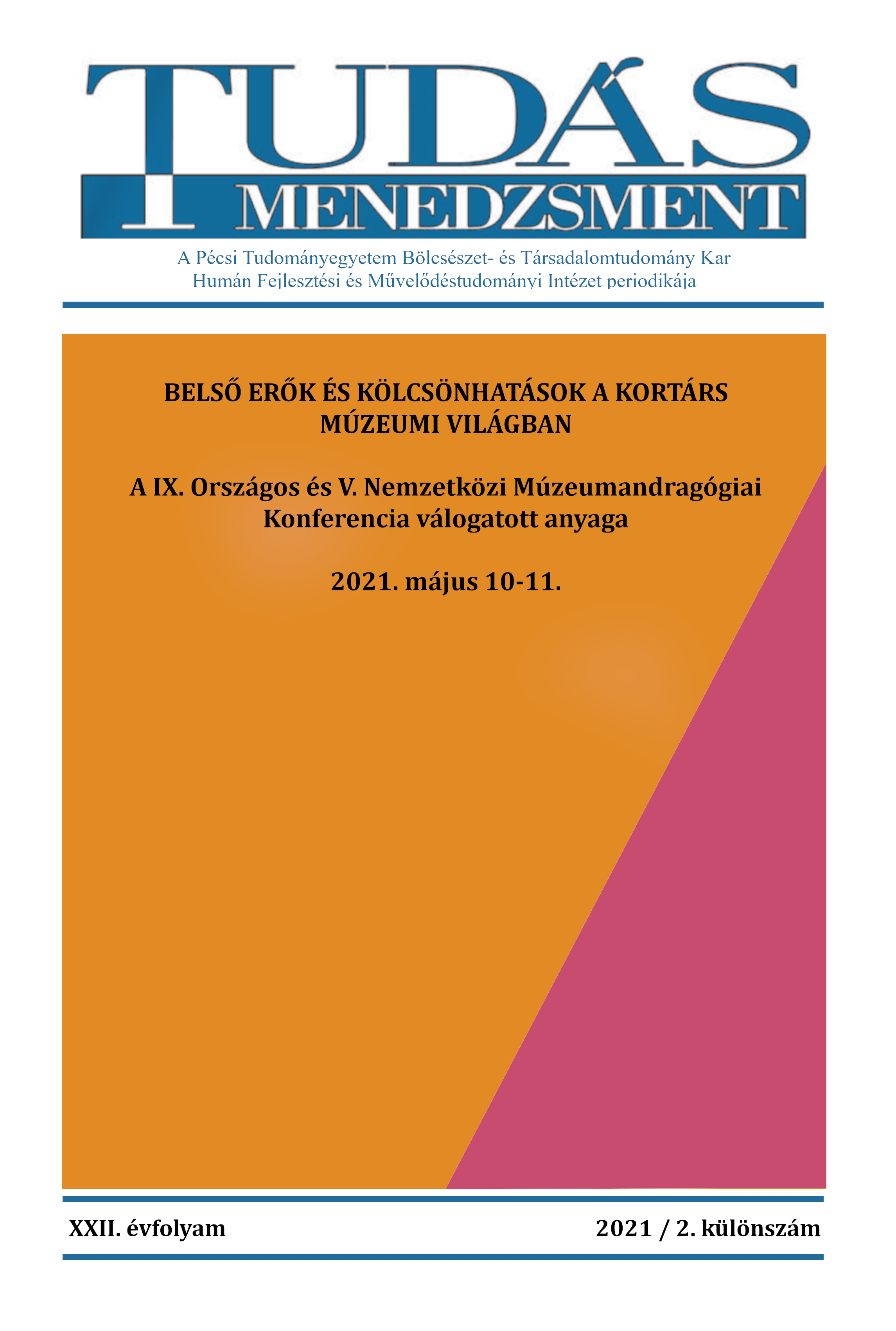Museums to strengthen young people’s resilience after the COVID-19 Juventocid
DOI:
https://doi.org/10.15170/TM.2021.22.K2.8Kulcsszavak:
COVID-19 Juventocide, Cultural Long-Covid, political immunosenescenceAbsztrakt
Hungary is one of those European countries whose subsoil resources are close to zero. The future of the country lies essentially in the human capital of Hungarian youth. Potentially, the Hungarian museum system plays a key political role in helping Hungarian society to overcome the political immunosenescence of the Corona episode, so that state, municipal and private funding of museum activities achieve a significant return-on-investment.
The aim of the research is to determine some of the factors by which the human capital of young people today is greatly reduced after they have had to live for a long time without social recognition by their peers during the Corona period. The result of the research is that we can speak of a COVID-19 Juventocide. The long theft of the resonance space on the one hand, and the shifting of costs into the future and thus to the detriment of the now young on the other, led to a lasting material and immaterial weakening also of Hungarian society the Cultural Long-Covid. It is therefore a central political task to strengthen the resilience of the young again and to take countermeasures after the Covid-19 Juventocide.
Our hypothesis - to be verified in the coming years in a renewed Hungarian museum practice - is that Hungarian museums can play a crucial role in this re-resilience task. The Hungarian government should prioritise the funding of artists and cultural institutions to dampen the long-term impact of the Corona measures.


